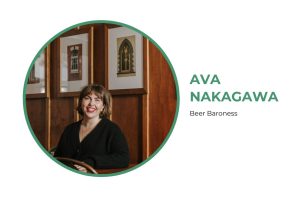A series of schemes across the country have been developed to provide training to members of society who otherwise might not be given a chance. While these opportunities can provide skills and training to the less fortunate, they also allow hospitality venues to become better aware of the needs of disabled customers.
North Island charity Trade School was awarded a three-year contract with the Department of Corrections to run barista training programmes within Arohata Women’s Prison.
“That idea of hospitality being this great connector, and this great convivial social space for people with these histories to become their best selves, it just felt like a really amazing idea,” said Matt Lamason, chair of Trade School.
However, Lamason, inspired by a visit to Los Angeles where a café employed former gang members, was determined to take a different approach.
“A lot of the women we're training, and the relationships that we were making with the women inside, just ended and stayed inside,” Lamason said. “There wasn't that continuity to life outside, and we wanted to do something about that.”
The café provides an eight-week programme to three women at a time, offering chances to those with a “prison past and a bright future.”
“[After the training] we'll assess and see whether they need to stay here longer or move them into a different role, or whether we shepherd them then into the industry,” said Lauren Tennent, Trade School training and reintegration manager. “Some of them have been going in and out for years now. They see a light – that the cycle of offending might now be broken.”
Trade School Kitchen isn’t the only programme of its kind operating in New Zealand. Now in its fifth year, the ‘Active in HELL’ programme has supported youths with intellectual disabilities and enhance their job prospects, with 116 workers having gone through the programme since its inception.
“Active in HELL is about giving these young people a chance in a commercial kitchen and exposing them to skills relevant for hospitality roles while getting paid,” said HELL general manager Ben Cumming. “It’s great to see trainees who, having been given the opportunity, have proven themselves able to be valuable members of the workforce.”
The paid training is tailored to each participant and covers everything from mandatory health and safety education to preparing food for sale. While the offer of a full-time role at the end of the training is not a stated goal of the programme, so far seven AIH graduates have been permanent employment with HELL.
“I had a great time working at HELL Pizza and learnt how to oil pans, work with dough and make pizzas,” said 24-year-old John Muroso, one of the Active in HELL graduates of 2018. Everyone was very supportive, and I enjoyed working with all of the other staff.”
Disability awareness is a hot topic at the moment, particularly in the UK. There are 11 million disabled people in the UK, and they hold a combined household spending power of £250 billion. Businesses have a lot to gain by ensuring that the needs of disabled customers are catered to – either by adapting facilities or training staff on disability awareness. It is hoped that programmes like Active in HELL are the first step into creating an inclusive environment, which will have positive flow-on effects to both the customer and the owner.






